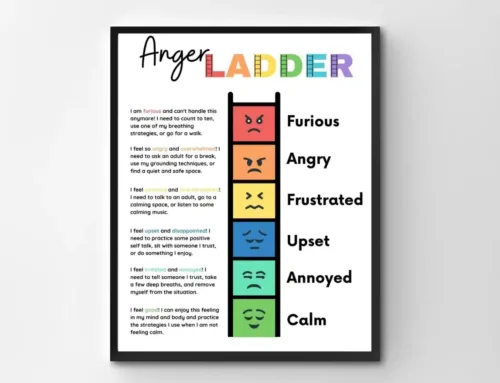Feeling angry is completely normal. Outbursts are preventable. This guide shows how do I stop my anger outburst in a few moments, how to stay calm with deep breathing and relaxation techniques, and how to build habits that reduce stress over the long run. You will learn healthy ways of expressing anger, problem solving skills, and communication skills that protect relationships and physical health.
How do I stop an anger outburst now?
Use a four by four breath, take a short time out, and reframe negative thoughts to regain control within two minutes.
Angry feelings are a powerful emotion that can flood the body with physical sensations such as a racing heart rate and tense muscles. Breathe deeply with a four by four pattern: inhale 4 seconds, hold 4, exhale 4, hold 4. Repeat eight rounds to complete two minutes. These deep breaths slow the nervous system and bring more control to behaviour.
Take a short time out for two to five minutes and step to a quiet time space where you can reset posture. Stand tall or sit upright, loosen your jaw, and take fresh air if you can. Replace hostile thoughts with neutral lines that shift focus to control. Say, “This is hard and I can handle it,” or “I can respond with one clear point,” or “I can speak in a respectful tone and avoid sarcasm.”
Use this one line script in a heated moment.
“Pause please. I need two minutes so I can stay calm and sort one point at a time.”
For a wider overview of skills and next steps if your really struggling, see our Anger Management counselling service.
How do I prevent the next outburst?
Build daily habits that lower reactivity by improving sleep, movement, and mindfulness.
Get enough sleep by targeting 7 to 9 hours most nights and limit caffeine after midday. Move your body for 150 minutes a week at a moderate level or 75 minutes at a vigorous level, and add two strength sessions. Take a brisk walk for 10 minutes during frustrating situations such as the daily commute. Practise five minutes of mindfulness with a simple breath count, or use a relaxing scene visualisation. Reduce alcohol on weeknights and drink two litres of water a day if your doctor approves it. For simple practices you can start today, read Meditation and Mindfulness Strategies.
How do I spot a surge before it peaks?
Track early warning signs and set plans for high risk moments to catch anger before it controls you.
Keep a brief log. Capture time, place, person, thoughts, intensity from 1 to 10, and the outcome. List common cues: hot face, tight jaw, hostile or mad thoughts, a raised voice, or urges to throw things. Pre plan coping steps: leave five minutes early, carry a snack, take three deep breaths before meetings, and ask for personal space if you feel heat rising. For more tools, try Stress Management Techniques.
When should I seek professional help?
Seek help when safety, health, or relationships are at risk, or when outbursts feel out of control.
Act if uncontrolled anger is frequent, if you feel out of control, or if others report harm. Choose cognitive behavioural therapy to build thought skills and behaviour change over six to ten sessions. Group programs add accountability and practice. Couples work helps when conflict repeats at home and partners drift into aggression or the silent treatment.
What causes anger outbursts?
High stress load, unmet needs, and rigid beliefs drive fast reactions.
Low recovery and high demands reduce tolerance. All or nothing rules such as “People must follow my rules” add fuel. Learned responses from family or past events can lead to unmanaged anger, physical fights, or withdrawing from talking. For context and examples, read Anger and Frustration.
Why do I get angry so quickly?
Low sleep, high stress, and hot thoughts shorten the fuse.
Sleep debt increases irritability and reduces impulse control. Hot thoughts such as mind reading and harsh judgments push fast reactions. Keep a one week trigger and sleep log to see how events affect mood. If anxiety is part of the picture, start here: What Is Anxiety.
Is anger a normal emotion?
Anger is a healthy emotion when you express it in safe and respectful ways.
Assertive expression names the behaviour, the impact, and a clear request. Aggression uses threats or force and risks hurting people. Passive patterns avoid issues until pressure bursts. The goal is control and choice, not suppression. For real world examples, see Anger Management Articles.
What early signs warn of an outburst?
Notice physical, emotional, and behavioural signals before the peak.
- Identify physical cues such as a clenched jaw, a racing heart, shaky hands, tight shoulders, or a sour stomach.
- Identify other emotions under the anger such as fear, shame, frustration, or sadness.
- Identify behaviour shifts such as interrupting, swearing, pacing, crowding a person’s space, or going to silent treatment.
What happens in the brain when anger rises?
Threat circuits speed up and thinking circuits slow down, which narrows attention and pushes action.
The amygdala drives a fast threat response, while the prefrontal cortex that handles planning and problem solving slows. Stress hormones raise arousal and narrow focus. Slow breath, a brief time out, and progressive muscle relaxation help the thinking system re engage so you can respond with choice.
Can stress or anxiety cause outbursts?
Ongoing stress and untreated anxiety lower the threshold for anger and make surges more likely.
Overload keeps stress levels high and sets the body to hypervigilance. Anxiety can turn neutral cues into threats. Reduce stress where you can, and seek care if anxiety co occurs with anger issues or depression. To understand overlap and next steps, read Stress vs Anxiety: How to Tell the Difference.
What are common triggers for anger?
Triggers cluster around fairness, respect, control, and overload.
Examples include traffic, noise, hunger, deadlines, alcohol, or a child ignoring a clear request. Map people, places, and topics that spike anger in your week and plan one change for each cluster.
How does anger affect relationships?
Frequent outbursts erode trust, safety, and communication.
Partners often withdraw or become defensive to protect themselves. Repair soon after an incident. Apologise for behaviour, validate the impact, and state one concrete plan for next time. Learn dialogue that avoids sarcasm and keeps talks safe with Resolve Conflict with Better Communication.
How does anger affect physical health?
Repeated spikes raise risks for high blood pressure, heart strain, poor sleep, and in the long run heart disease.
Each outburst can elevate blood pressure and load the cardiovascular system. Sleep disruption and low mood often follow conflict. Early action protects physical health and mental health. For the biology of stress and why action now leads to better outcomes later, see How Prolonged Stress Creates Illness.
Which thoughts make anger worse?
Absolute rules and assumptions pour fuel on hot states, so replace them with flexible statements.
Spot always, never, must, and should in self talk. Replace mind reading with a testable request, for example, “I will ask what time you expect me to arrive.” Use these three replacements when you feel angry:
- “I can slow down and choose one next step.”
- “I can speak in a calm voice and keep respect.”
- “I can take a short break and return ready to problem solve.”
To build structure for thought change and problem solving skills, see What Is Cognitive Behavioural Therapy (CBT).
How do I repair after an outburst?
Own the action, validate the impact, and state a plan you will follow.
Use an I statement with behaviour, impact, and request. “When I raised my voice, I upset you. I am sorry. I will take a two minute time out next time. Can we try again now with one topic at a time” Offer one step you will take and follow through. Ask the other person what would help them feel safe.
Which tools help me practise skills?
Use simple logs, breath apps, and short guides to keep progress on track.
- Track triggers and wins weekly on a two column sheet.
- Set phone reminders for breath breaks at 10 am and 3 pm.
- Practise progressive muscle relaxation for five minutes in the evening.
- Keep a one page crisis plan in your notes with your script, numbers to call, and a relaxing scene you can picture.
Browse Books for concise guides you can use at home.
Where can I get local support?
Book help if outbursts persist or risk is present, and involve your GP if you are unsure.
Ask your GP for a check and a referral to therapy. If you are in Western Australia, view directions and hours at Perth Location to arrange local care.
Conclusion
Anger is a healthy emotion when you guide it. Catch early warning signs, breathe four by four for two minutes, take a short time out, and make one clear request. Reduce stress with 7 to 9 hours sleep, regular movement, and five minutes mindfulness. Repair quickly if you slip. If patterns persist or safety is a concern, arrange help via Counselling Services and review our Anger Management service.
Related Posts
Fees And Rebates
We offer cost-effective solutions that can fit within your budget. The insights and skills acquired in therapy can continue to positively impact mental and emotional health long after the therapy sessions have ended, making it a truly worthwhile investment in yourself.















